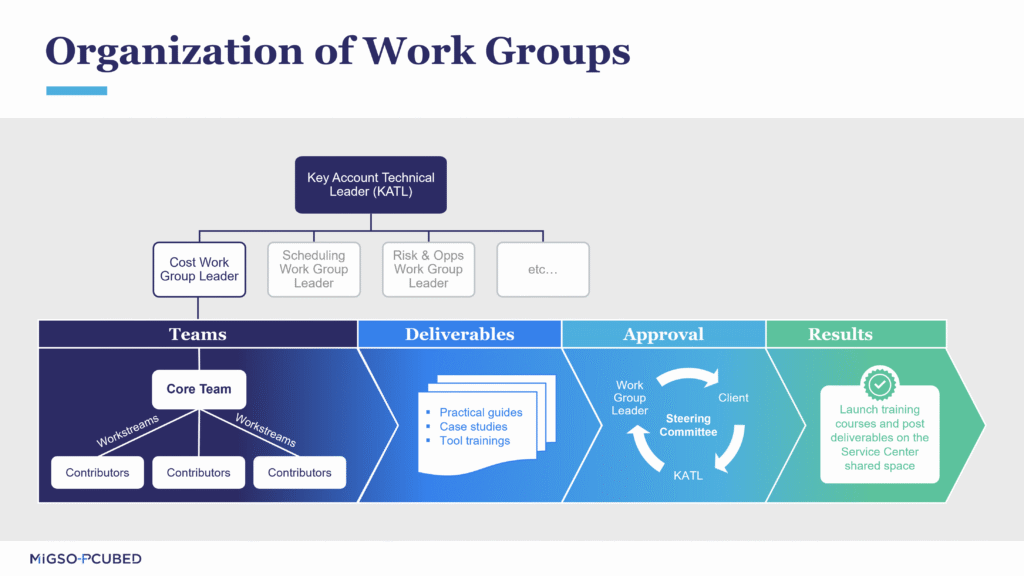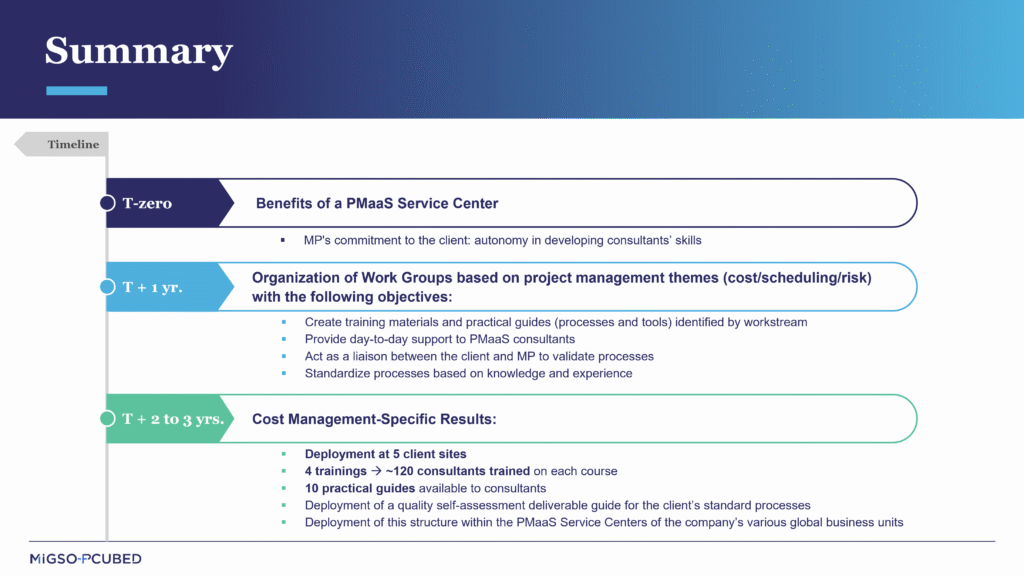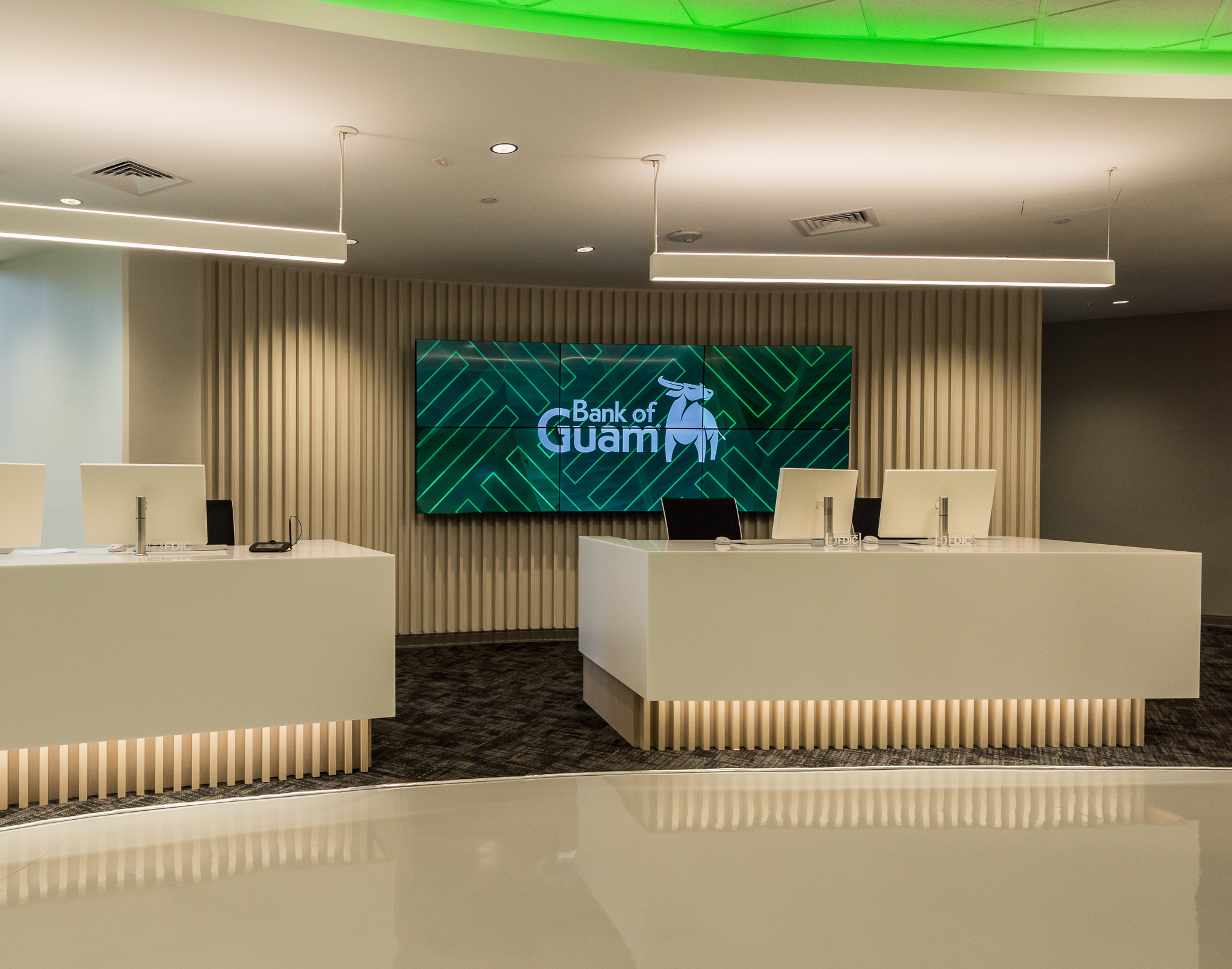Case study: Up-skilling a PMO without impacting operations
- Aerospace & Defence, PMaaS
MIGSO-PCUBED (MP) applies its expertise in cost management to one of its customers, a major player in the security, defense, and aerospace industries in France and worldwide.
Organized as a PMaaS Service Center (Centre de Services) for the past two years, MP faced several challenges in meeting the client’s expectations as the team grew. One of the challenges was to set up an organizational structure within the PMaaS Service Center to ensure MP’s ability to integrate and upskill consultants.
With the goal of not impacting any client’s operations, and while ensuring the required level of delivery quality, an additional requirement was that this up-skilling had to be carried out in complete autonomy within the PMaaS Service Center.
This article describes how MP organized itself to meet these requirements, the solutions that were put in place, the associated results, and the benefits of the new structure to the client.
Table of Contents
Challenge
The client had selected MP to meet its Project Management Office (PMO) needs and provide its expertise on project management issues: costs, scheduling, risks & opportunities. The organization of the PMO team as a PMaaS Service Center enables MP to manage the client’s projects by autonomously generating the volume of deliverables needed to do so. One of the challenges for the client is to minimize the impact on its activities and, thus, to integrate MP into its operations as efficiently as possible.
The client, therefore, makes MP accountable for the quality and timeliness of the deliverables required for their smooth operations. And, in order to be as competitive as possible, MP is also committed to training and up-skilling our consultants who work across 5 customer sites in France. Therefore, the client can rely completely on MP’s responsibility, without having to mobilize physical or material resources for the realization of deliverables, as well as for up-skilling. In this way, two main challenges had to be met:
- Identify the information necessary to be shared with the entire Service Center PMO team in correlation with client’s deliverables and that is adapted to the various profiles of MP consultants.
- Set up the structure needed to create, maintain, and share this information with consultants, while respecting the client’s processes.
The client environment was also an important parameter for MP to take into account. For their projects, the client handles sensitive information and must comply with security standards to ensure the integrity of the confidential information processed. Therefore, MP’s engagements take place in a highly compartmentalized context in terms of communication between the various departments. MP had to adapt so as not to compromise data confidentiality, while at the same time bridging this gap in communications. This decompartmentalized approach enabled all MP consultants to be on the same level of information, thus standardizing the production of deliverables and drawing on the best practices of each of the client’s sectors.
Solution
To meet these challenges, the Service Center PMO team has organized itself into Work Groups with the following objectives:
- Create training materials and practical guides (processes and tools) identified by workstream,
- Provide day-to-day support to PMaaS consultants,
- Act as a liaison between the client and MP to validate processes,
- Standardize processes based on knowledge and experience.
The Work Groups are teams of around 15 consultants, each with defined roles and responsibilities:
- Key Account Technical Leader (KATL): ensures the link and coherence between the different Work Groups.
- Work Group Leader: oversees all projects within the Work Group and is the key liaison between consultants and the client for day-to-day support.
- Core Team (3 to 5 people): the members of the core team participate in drawing up the list of necessary projects and manage these projects together with the Contributors.
- Contributors (~10 people): they take part in carrying out the project.
This project-based structure made it possible not only to identify and prioritize all the projects necessary for the consultants, but also to carry them out in accordance with client’s specifications, through regular exchanges on the projects’ statuses and their validation prior to publication. This enabled us to manage a wide range of projects, including:
- Training materials on various processes and tools
- Self-supporting “step-by-step” practical guides for consultants
- Utilizing and benefiting from client knowledge

This Work-Group organization is based on project management methodology and is independent of the client’s sector of activity. As a result, this structure enables independent skills development and can be applied to a wide range of business sectors. It is also adaptable to industry-specific tools, processes, and methodologies. In fact, this organization has already been duplicated in several Business Units independent of the client.
Results
The concept has enabled the client to be more efficient and to delegate all consultant training responsibility to MP. Therefore, the onboarding of new consultants is managed exclusively by MP, saving the customer a considerable amount of time, as they do not have to bear the cost of training each MP consultant. In addition to its own consultants, MP was able to offer the possibility of training new client interns in the field of project management in general, to help them develop their PM skills.
This solution is global to project management and can be applied not only to cost management (as was the case here), but also to risk & opportunity management, or even scheduling. Regarding cost management, this structure has facilitated the development of four training courses, available to over 120 consultants at 5 industrial sites in France. The Work Groups have also provided 10 practical guides for process and tools over a 2-year period.
The overall solution proposed to the client was implemented in three stages. Firstly, the PMaaS team structured as a PMO Service Center enabled the creation deliverables catalog, from which the customer could select the Work Units required to meet their operational needs.
Secondly, by structuring it into Work Groups, the Service Center team was able to mature in terms of the client’s expectations and is now in a position to train both PM and internal client consultants. Finally, in order to guarantee the quality of deliverables linked to the Work Units, cooperation between the Work Groups and the client has enabled us to:
- Standardize quality check process for each Work Unit in the catalog
- Measure the quality of the deliverables contained in the Work Units
- Ensure the processes are applied at the operational level (project manager, batch manager, PMO).
Finally, after confirming that the solution worked well within the PMO Service Center, MP rolled it out more widely to the other various PMaaS teams of the customer’s Global Business Units.

This article was originally written in French by Nicolas HOBAYA and Rémi BALLANGER.
Loved what you just read?
Let's stay in touch.
No spam, only great things to read in our newsletter.



